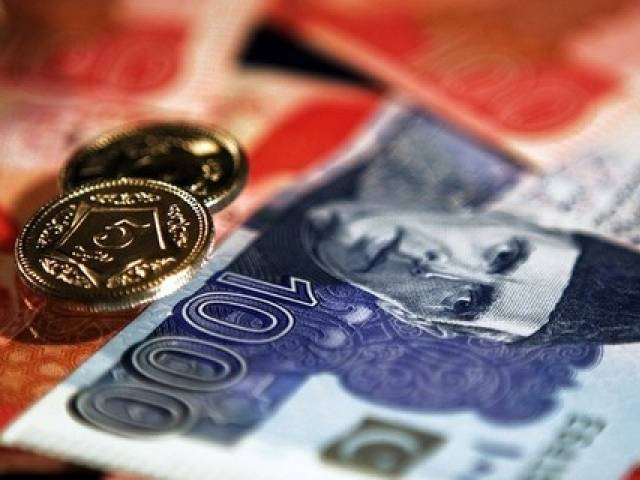Profit rates on saving schemes raised
Move aimed at attracting higher investment in government papers

The federal government has increased the rate of profit on two national saving certificates to attract investors to park their savings in the national schemes, as net investment in saving certificates and prize bonds turned negative in the first six months of current fiscal year.
People pulled out a significant amount of investment mainly during December 2020. Accordingly, the net investment became negative at Rs8.98 billion in July-December 2020, according to the State Bank of Pakistan (SBP).
The Central Directorate of National Savings (CDNS), which offers saving schemes to the general public, announced that it had increased the rate of profit on Defence Saving Certificates (DSC) by 27 basis points to 9.51%.
Besides, the rate of profit on Special Saving Certificates (SSC) was revised upwards by 60 basis points to 8.40%. The new profit rates came into effect on Wednesday, March 3.
It is for the second time in two months that CDNS - which works under the ambit of Ministry of Finance - has increased the rate of profit on the two certificates. CDNS re-invests the funds received from retail investors in three to 10-year Pakistan Investment Bonds (PIBs) and award profit to the investors on the income earned from PIBs.
CDNS is managing investment portfolio of around seven million individual and old institutional investors.
The government utilises the investment attracted through the national saving accounts and certificates to bridge the budget deficit.
“CDNS has increased the rate of profit in line with the surge in the rate of return on PIBs,” AHL Research Head Tahir Abbas said while talking to The Express Tribune.
Rates of return on PIBs have been on the rise for quite a long time. For example, the cut-off yield (profit rate) on three-year PIBs increased by 42 basis points in the last auction of government paper on Wednesday.
Similarly, the cut-off yield on five-year and 10-year PIBs surged by 31 basis points and 14 basis points respectively in the latest auction conducted by the central bank, he noted.
The rate of profit on other saving certificates remained unchanged. Accordingly, the rate of profit on Behbood Saving Certificates (BSC), Pensioner Benefit Account (PBA) and Shuhada Family Welfare Account (SFWA) remained pegged at 11.28% each.
Besides, the rate of profit on Regular Income Certificates (RIC) stood at 9%. The annualised rate of return stood at 6.8% on three-month Short Term Saving Certificates (STSC), 7% on six-month STSC and 7.35% on 12-month STSC. The rate of profit on savings account stood at 5.5%, according to a CDNS notification.
The data released by the central bank showed that investors pulled out savings from Defence Saving Certificates in the first five months out of the six months under review. They divested a net Rs1.97 billion from these certificates during July-December 2020.
Besides, they pulled out Rs13.82 billion from prize bonds in the six months under review following the decision of the government to discontinue prize bonds of Rs40,000 and Rs25,000. People are en cashing those bonds. This has partially offset the growth in investment in national saving certificates. People have divested another Rs13.24 billion from other saving certificates.
They, however, invested a net Rs12.94 billion in Special Saving Certificates and Rs7.10 billion in Regular Saving Certificates, according to the central bank. In the previous fiscal year ended June 30, 2020, the CDNS raised a net investment of Rs372.44 billion.
The government has also banned institutional investors from putting their capital into national saving certificates in the recent past. This stood as a major reason for having mobilised low investments to form the general public in some of the saving certificates and overall net investment in saving schemes offered by CDNS which stood in negative during July-December 2020.
Published in The Express Tribune, March 4th, 2021.
Like Business on Facebook, follow @TribuneBiz on Twitter to stay informed and join in the conversation.



















COMMENTS
Comments are moderated and generally will be posted if they are on-topic and not abusive.
For more information, please see our Comments FAQ